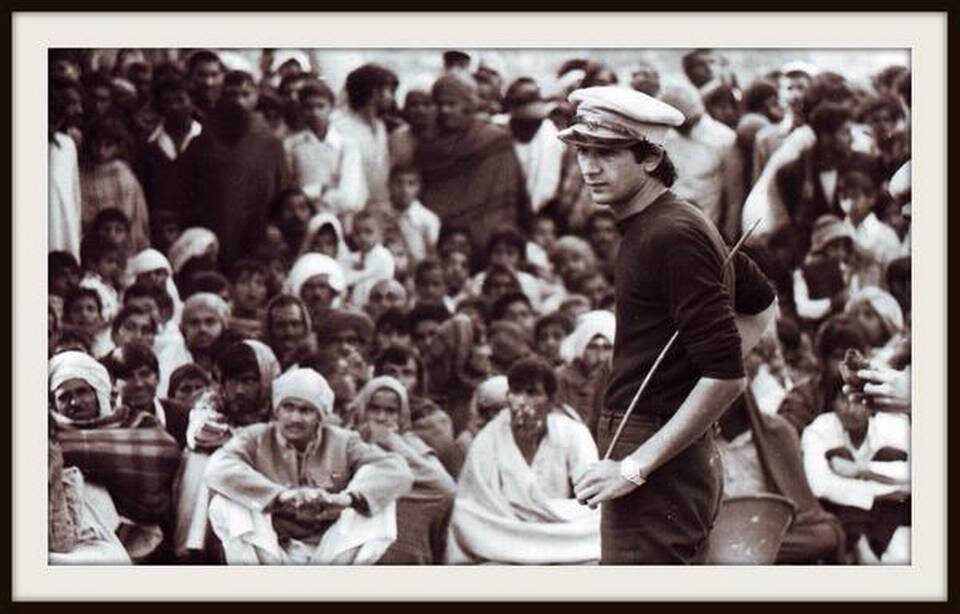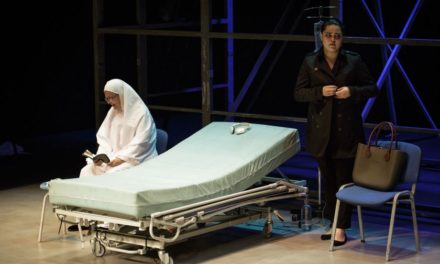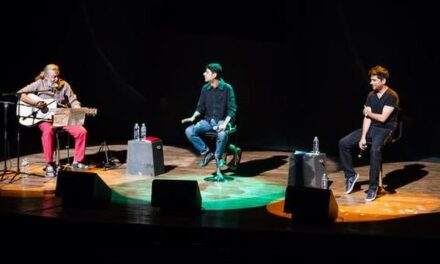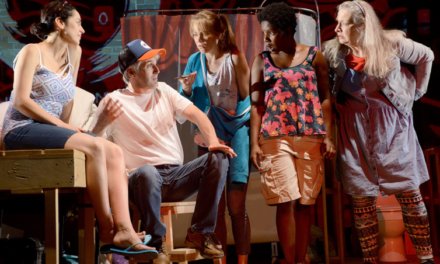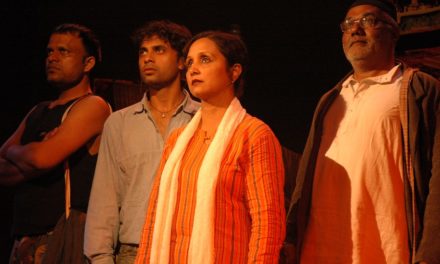Sudhanva Deshpande’s book, Halla Bol remembers the legendary theatremaker and activist through a series of events that recall his life’s worth.
A book tour with a difference is currently making its way across Mumbai. Sudhanva Deshpande’s book, Halla Bol, that celebrates the life and art of icon Safdar Hashmi, is the focus of a series of events organized by the Jana Natya Manch (Janam) at a slew of cultural venues. At each space, the proceedings include a performance of the iconic 13-minute, Machine, a lyrical piece on industrial labor written by Safdar (then 24) and Rakesh Saksena.
It was Janam’s first-ever street play with its opening performance taking place in 1978. At last evening’s showing at NCPA’s Experimental Theatre, Naseeruddin Shah joined Janam actors in reading excerpts from Halla Bol, the play that gives the book its title. Apart from Shah, other speakers at the events include Janam pioneer Moloyashree Hashmi, Annie Zaidi, P Sainath, Shanta Gokhale, and Deshpande. Published in Hindi and English by Vaam Prakashan and LeftWord Books respectively, his book is available for sale at all venues. The closing performance at Lokhandwala’s Studio Tamaasha will feature local actors and singers reading and performing from Janam’s and Safdar’s works.
Truth and Power
‘Halla Bol’ is the colloquial clarion call of socialists, the import of which could be described as ‘creating a ruckus’ while speaking truth to power. The English word hullabaloo shares its Persian forebears with the Hindi phrase. ‘Raise a slogan’, as it is sometimes translated to, doesn’t quite carry the same charge. Halla Bol was incidentally the street play Safdar was performing with his cohorts at a labor colony in Jhandapur in 1989 when he was fatally attacked by Congress cadre. There were two deaths, and Deshpande describes disquietingly in his foreword, “An artist’s head deliberately clobbered by blunt instruments, a worker’s life snuffed out casually by a bullet.”
The play, Halla Bol was a reworking of Safdar’s Chakka Jam, written for a seven-day strike mobilized by the Centre of Indian Trade Unions in 1988. That play was remade based on worker demands so that it could continue to be performed, according to Dia Da Costa in Politicizing Creative Economy: Activism and a Hunger Called Theatre. Thus, the power of Halla Bol can be attributed to both middle-class cultural activists and factory workers, coming together like never before. This was also true for the rallying cries raised during the strike. Of course, the slogan has often been appropriated at odds — in Mulayam Singh Yadav’s call to boycott ‘separatist’ newspapers in 1994, or in Amit Jayaram’s poem on Ayodhya, or as a television catchphrase for irate newscasters subservient to the regime.
In Solidarity
A couple of days after Hashmi’s passing, members of Janam returned to the site of his martyrdom to perform the play with large numbers standing in solidarity. It spawned silent protests across the country and further performances of Halla Bol. It was immediately evident that Hashmi’s flame could not been extinguished, and his legacy would remain unfurled in manifold ways.
In this regard, the book’s tag-line ‘The Death and Life of Safdar Hashmi’ acquires a prescient significance, even if written in aching hindsight. As detailed in Da Costa’s book, Deshpande was a young student going through his own rites of passage during the late 1980s, aloof and politically nonchalant at first, but soon to become one of Janam’s foremost stalwarts. Safdar’s death was a catalyst for Deshpande’s political coming of age, as he was catapulted from a begrudging apprenticeship to a leadership role armed with an ideology for life.
Jana Natya Manch celebrates Safdar Hashmi through performances, readings, and conversations on March 6, at 1 p.m, at TISS, Chembur and at 6:30 p.m. at Goethe Institut/MMB, Kala Ghoda. On March 7 at Studio Tamaasha, Lokhandwala, Andheri West at 7 p.m.
This article was originally posted at TheHindu.com on March 05, 2020, and has been reposted with permission. To read the original article, click here.
This post was written by the author in their personal capacity.The opinions expressed in this article are the author’s own and do not reflect the view of The Theatre Times, their staff or collaborators.
This post was written by Vikram Phukan.
The views expressed here belong to the author and do not necessarily reflect our views and opinions.

